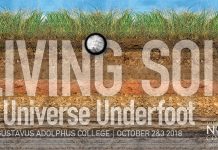As a month, November is no great shakes. In fact, it may be the lamest of all the calendrical subdivisions. The best part of autumn—the changed and changing leaves, the high blue skies, the lawns still soft and green—is gone. The world that spreads about you now is a gray-brown, frost-blasted, bare-treed hinterland, a place right out of a 1950s filmstrip on Soviet industrial zones. The only incentive you have to venture across this postapocalyptic peat bog is the promise of an enormous meal at the end of the month. This meal, of course, will be doused in a gravy the color of November’s soul. Even if you pass on the gravy, this meal will almost certainly shorten your life.
Fortunately, what November lacks in aesthetic and emotional comforts, it makes up for in metaphorical and motivational punch. More than any other month, November is the lone muted trumpet heralding your unavoidable decline. For precisely this reason, November gives you the kick in the pants you need to embark on some important end-of-life planning. I’m not talking about fiddling with your will or flipping through nursing-home brochures or applying dabs of fiscal caulk to your 401(k). I’m talking about figuring out exactly what you’re going to do with yourself. What kind of old person are you going to be? The trim, efficient, speed-walking, cholesterol-calculating know-it-all? The yardwork obsessive, with the kneepads and the immaculate turf and the six different kinds of mulch? The newspaper slicer-upper, forever sending clippings about vitamins and child-rearing and unspeakable crimes to your offspring? The one-man or one-woman Neighborhood Watch? The happy ambler, always on your way to the market for thumbtacks or cornstarch or lubricating oil, greeting everyone you meet as “Hon” or “Buddy”? The bitter recluse? The infamous tippler? These are just examples—brainstorming aids, if you will. Don’t think you have to limit yourself to only one choice. But do choose. Otherwise you risk drifting into invisibility, even unpersonhood. Before your time, I mean.
Are you going to winter somewhere warm? Naples, maybe, or Palm Desert? Do you see yourself playing golf or tennis every morning, then spending afternoons in the pool, chlorinated wavelets lapping your bronzed belly as the palm shadows lengthen and swing around and usher in the tender, spendy, far-from-Arctic evening? Maybe you’ll try it for a few years and then realize that this particular old age is, in the end, not quite right for you. Maybe it will turn out that your mind never really leaves the Midwest, and you’re just not comfortable with a lengthy body-mind separation, and maybe the very sight of palm trees, which once struck you as exotic and entrancing and sexy as hell, now seems both garish and insubstantial, like something that ought to be stenciled on a souvenir ukulele. I’m just saying, think these things through. Now, in November.
Here’s something else: pets. Will you own any, and if so, will you be mentally and emotionally prepared in the event they begin talking to you? I’m not being facetious here. I’m 52, and already the cats in our house look at me sometimes with such an air of conversational expectancy that I think maybe they have said something and I missed it. If and when I do start hearing their remarks, I won’t be surprised. It’s all about being planful.
When you really start to think about it, there’s no end to the contingencies for which you might want to plan. For instance: What if you tell your wife you’re going out to get a haircut—you know, just over to the guy in south Minneapolis who’s been your barber for 30 years—and 12 hours later the police find you asleep in your car at a scenic overlook north of Duluth? You have to plan for this now, in detail; in effect, you have to prelive the experience, because if and when it happens, you won’t remember it. Because if you were in shape to remember it, you wouldn’t have done it in the first place.
Pick an afternoon in early fall, say. You can choose any day you like, but why not go when the part of the world you’ve always lived in is at its most beautiful? Why would anybody in his right mind stay home watching the Golf Channel on an afternoon like this? Drive around town for a while—you never intended to get your hair cut, not today, or if you did, well, intention is a mutable thing. Maybe you want to drive by all the places you ever worked in this town, or at least the ones that are still standing. You could drive by the kids’ old schools, too, park for a while by the ball fields. If you’re surprised to find that your boy is still making that catch—the impossible airborne game-saving catch that became one of his life’s touchstones—you don’t show it. The blood on his chin is fresh. He has never been happier. His middle name is—whatever.
You’ll want to get out of town before dark. By now people will be looking for you, though you won’t think about that. North has always been a good direction, so up you go on the interstate, a lucky, lucky man in a big comfortable car with a full tank of gas, lucky because you were born in the United States of America, lucky because you had your hard times young, lucky because you survived the war you were the right age for, lucky because history smiled and God kept you more or less on the radar, lucky because the setting sun is on your left, the low rays slanting over a hayfield, and is there anything prettier than a swath of harvested land in the last hour of a perfect day, the fresh tall bundles sending their long shadows across the gold?
On you go, north, northeast, the fading sunset a hymn in the air beside you, thinking thoughts you could never describe even if you remembered them. Your father is in the car with you, still with his embarrassing old-country accent, talking about Harry Truman. You smell sloe gin and violets, which means you’re coming home from a dance with Dixie Blaine. You’re smiling like an idiot, and it’s Carl Schnellenberg in the seat beside you, your Army buddy Carl who made you laugh like no one else in the world ever did. It’s a ’52 Plymouth Cranbrook, it’s a spring-busted Ford Jeep, it’s a goddamn Winnebago hauling you and your wife, your kids, two dogs, and a guinea pig. You’re going to Split Rock Lighthouse; it’s all been very carefully planned. Planning is important, because the last thing you want is to be lost for half a day. There’s nothing worse than that queasy lost feeling. You’re fine, though. You’re a free man driving through the great big blue-black star-washed American night. You’re the furthest thing from lost there is.
The officer who knocks on your window is very courteous. He greets you by name and tells you he understands you’ve had quite an adventure tonight. You nod, noncommittal, squinting in the glare from his flashlight. When he helps you out of your car, the north wind hits you. You feel it in your belly and legs, and from somewhere below you hear waves crashing on rock, a cold sound in the darkness. It’s strange; you must have come farther than you intended. Up here, it feels like November.
Contributing editor Jeff Johnson wrote this one for his wayfaring dad.






